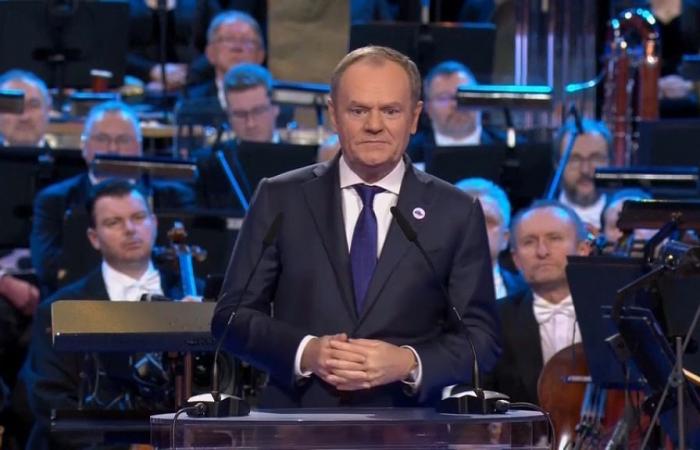After six months of Hungarian presidency of the Council of the European Union which will have caused many teeth to grind in Brussels, it is Poland’s turn to officially take the lead with the investiture gala organized this Friday in Warsaw.
An evening that began with speeches from Polish Prime Minister Donald Tusk and European Council President António Costa, followed by a concert in front of a crowd of guests from all over Europe… with the exception of European Commission Ursula von der Leyen, who had to cancel his participation due to pneumonia.
Hungarian Prime Minister Viktor Orbán and the Hungarian ambassador were not invited, following a diplomatic dispute over the political asylum of a former elected official from the conservative Polish Law and Justice party, suspected of embezzlement. public funds in his country.
Strengthening European defense
For six months, Warsaw should play much more collectively than Budapest to try to advance European issues. Starting with support for Ukraine, of which Poland is one of the fervent defenders, while Viktor Orbán offended Brussels by going to Moscow in July to meet Vladimir Putin and by multiplying initiatives without consultation.
Security in all areas, whether military, economic or energy: this is the mission that Poland has set for this six-month mandate. Equipped with the first European army, the country of 38 million inhabitants encourages its partners to strengthen their defense.
-Another challenge for Poland is to fight against illegal immigration. Warsaw in fact accuses Russia and Belarus of waging a hybrid war against Europe by organizing the influx of migrants.
Donald Tusk’s government also wants to put in place the new pact for clean industry led by the European Commission. Poland, which sees itself as the European leader in the manufacturing of lithium batteries, is nevertheless struggling to turn the page on coal, the source of two thirds of its electricity production.
Health, food sovereignty, climate challenges, but also disinformation are also on the menu of the Polish presidency, determined to involve the business world, universities and civil society in its work.






